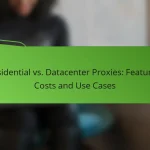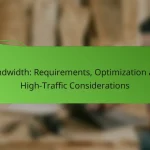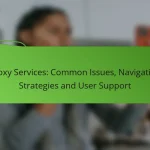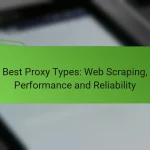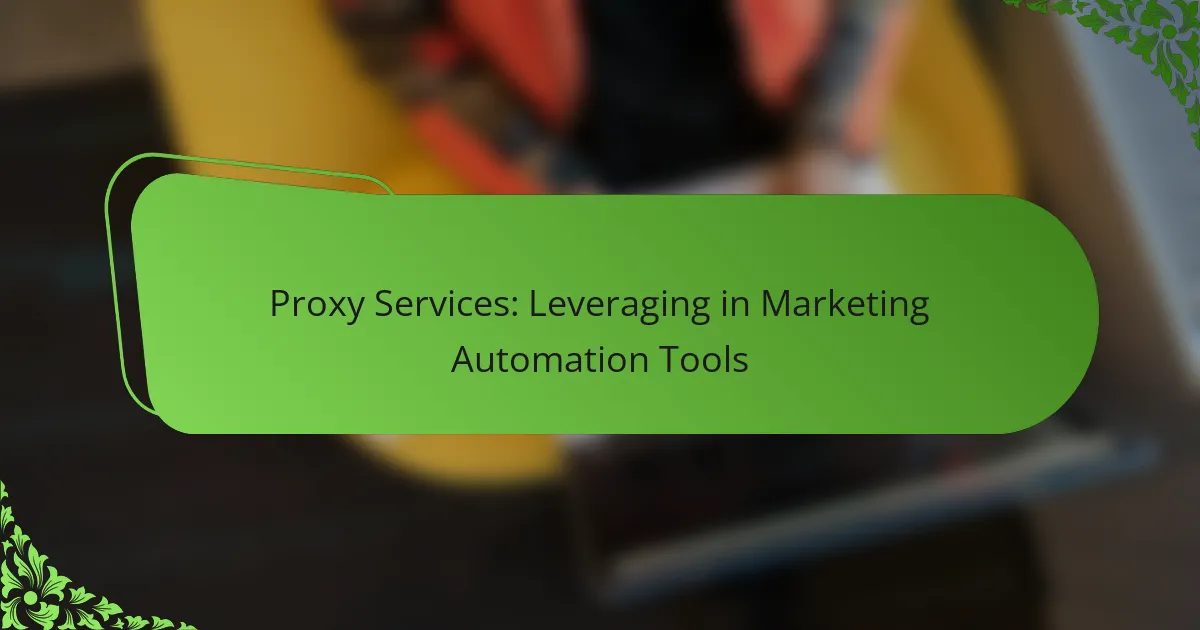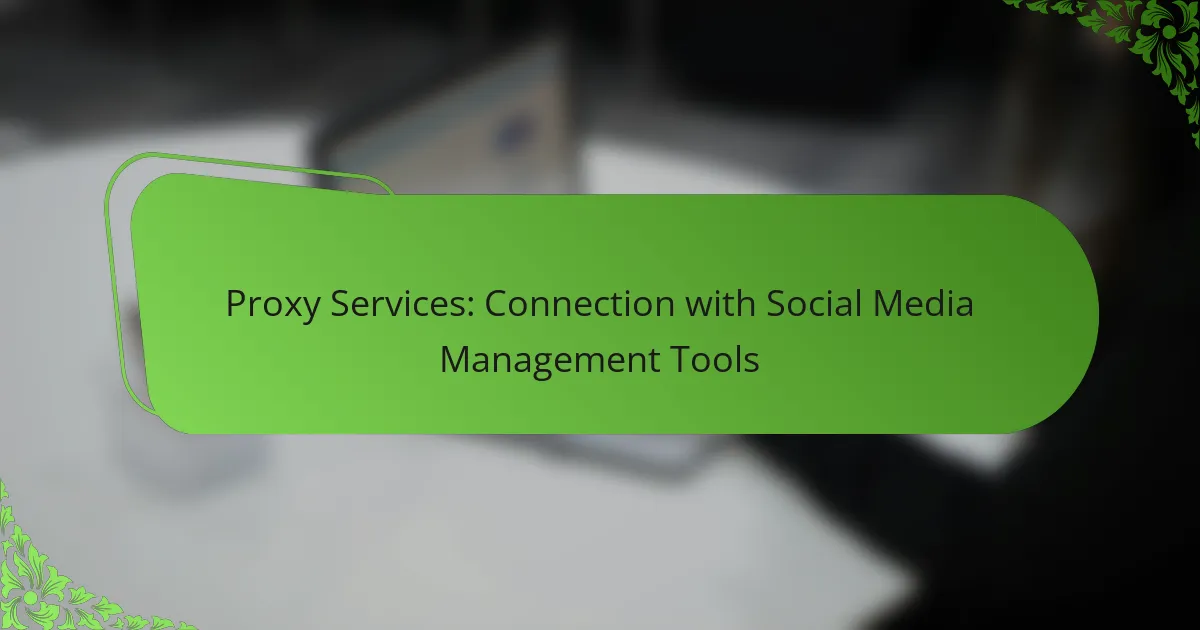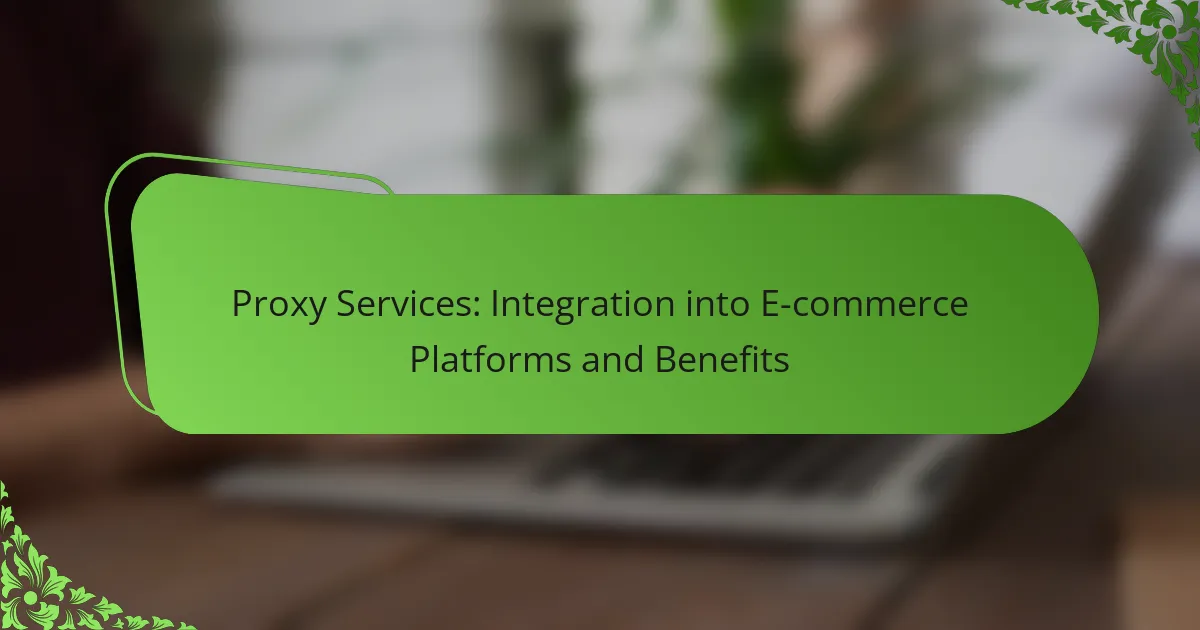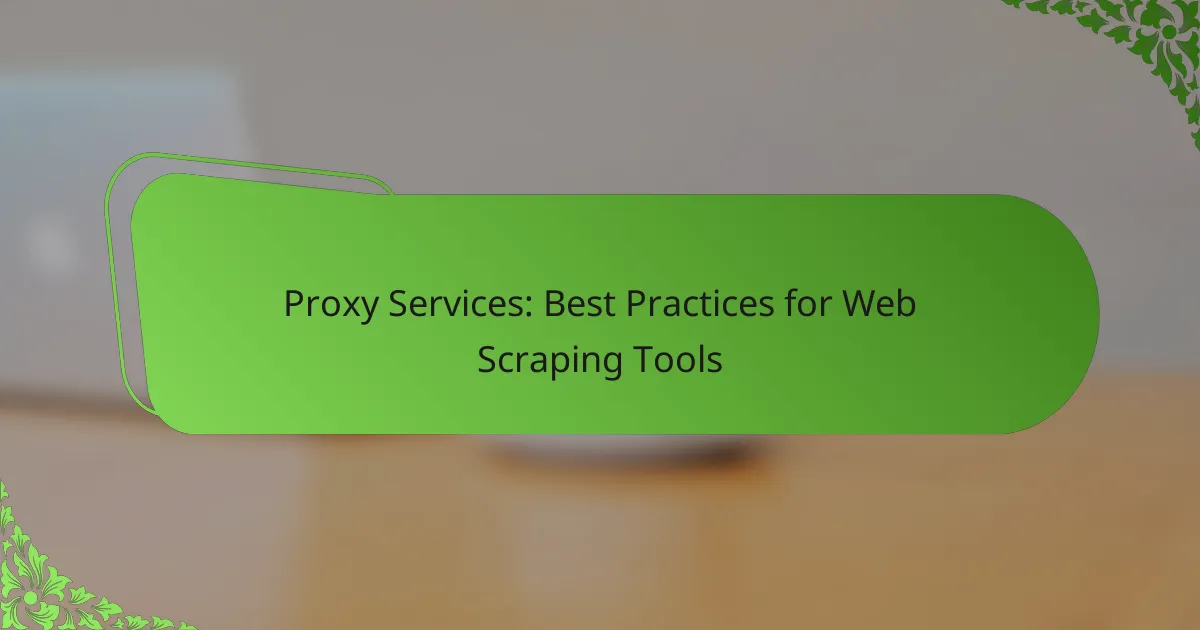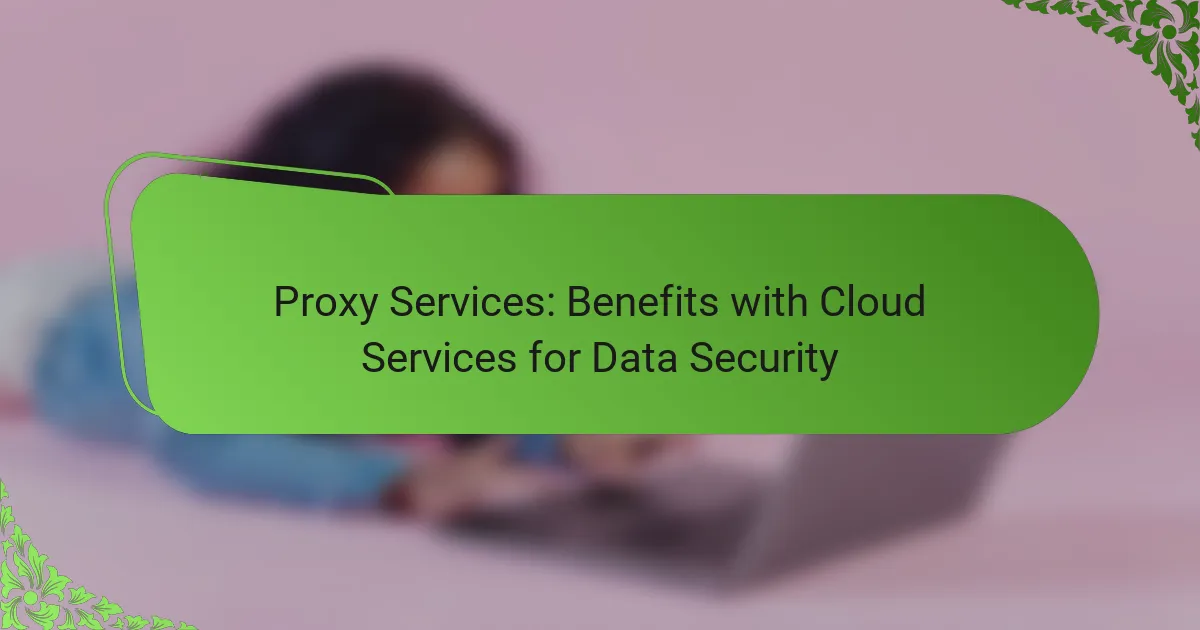Proxy services play a crucial role in enhancing marketing automation tools by facilitating efficient data collection and improving targeting accuracy while safeguarding user privacy. By utilizing various IP addresses, businesses can gather deeper insights and engage more effectively with their audience, all while ensuring compliance with data regulations.
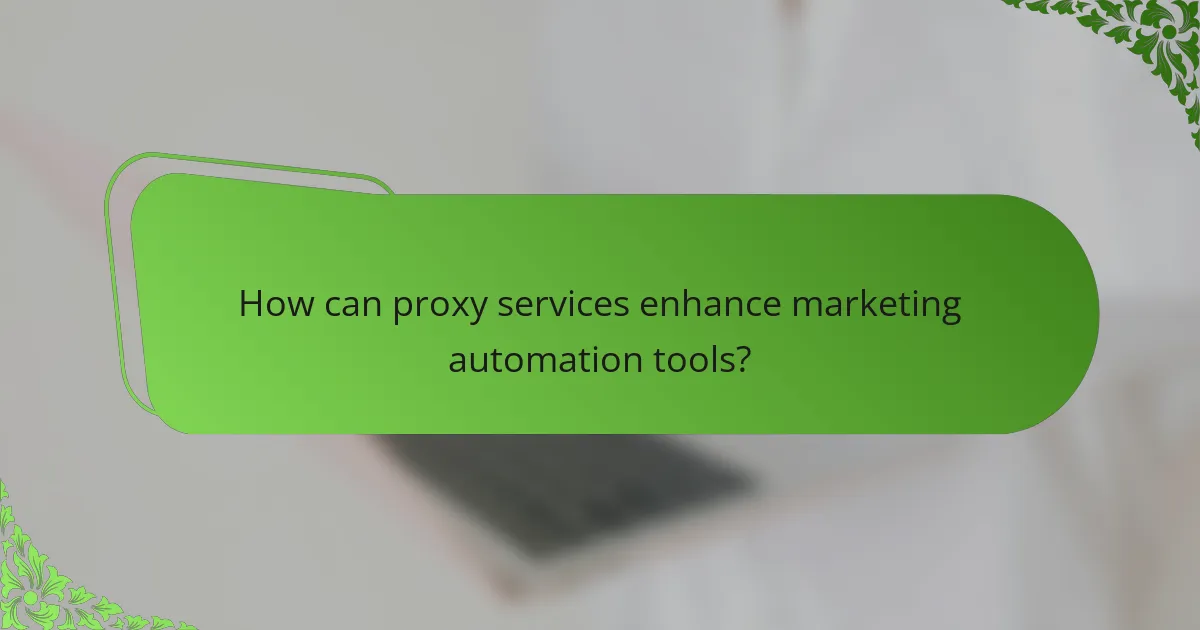
How can proxy services enhance marketing automation tools?
Proxy services can significantly enhance marketing automation tools by improving data collection, increasing targeting precision, and ensuring user privacy. By routing requests through different IP addresses, businesses can gather more comprehensive insights and engage with their audience more effectively.
Improved data scraping capabilities
Proxy services enable businesses to scrape data from various online sources without being blocked or restricted. By using multiple IP addresses, companies can gather competitive intelligence, monitor market trends, and analyze customer behavior more effectively.
When implementing data scraping, consider using rotating proxies that change IP addresses frequently. This approach minimizes the risk of detection and allows for continuous data collection over time.
Enhanced ad targeting accuracy
With proxy services, marketers can access location-specific data, which enhances ad targeting accuracy. By analyzing user behavior from different geographical areas, businesses can tailor their campaigns to resonate with local audiences.
For example, a company can use proxies to gather insights on regional preferences and adjust their advertising strategies accordingly, leading to higher engagement rates and conversion levels.
Increased privacy and security
Proxy services provide an additional layer of privacy and security for marketing automation tools. By masking the original IP address, businesses can protect sensitive data and reduce the risk of cyber threats.
When using proxies, ensure they are reputable and comply with data protection regulations. This helps maintain customer trust and safeguards against potential legal issues related to data misuse.
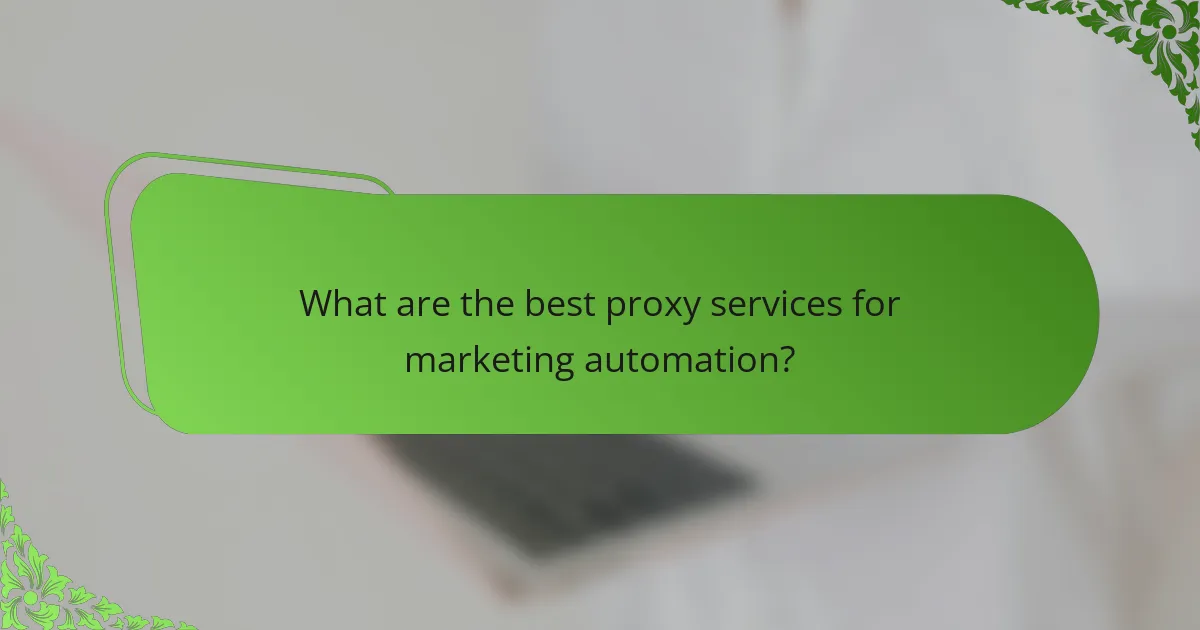
What are the best proxy services for marketing automation?
The best proxy services for marketing automation include Bright Data, Smartproxy, and Oxylabs. These services help marketers manage data scraping, ad verification, and competitive analysis while maintaining anonymity and compliance with regulations.
Bright Data (formerly Luminati)
Bright Data is a leading proxy service known for its extensive network of residential IPs. It offers over 72 million IP addresses worldwide, allowing marketers to access localized data effectively.
When using Bright Data, consider its pricing structure, which can be based on bandwidth usage or the number of IPs. This flexibility is beneficial for businesses with varying needs, but it may lead to higher costs if not managed properly. Ensure you monitor your usage to avoid unexpected charges.
Smartproxy
Smartproxy provides a user-friendly interface and a robust network of over 40 million residential IPs. It is particularly favored for its ease of use and competitive pricing, making it suitable for small to medium-sized businesses.
One key feature of Smartproxy is its session control, which helps maintain persistent connections for scraping tasks. This can improve data accuracy and reduce the risk of getting blocked. However, users should be cautious of the limits on concurrent connections, which can affect larger operations.
Oxylabs
Oxylabs is known for its premium proxy services, offering over 100 million IPs and advanced features like real-time data collection. It is ideal for enterprises requiring high reliability and speed in their marketing automation efforts.
Oxylabs also provides dedicated account managers and 24/7 customer support, which can be invaluable for businesses that need assistance with complex scraping tasks. However, its pricing is generally higher than competitors, so it’s essential to evaluate whether the investment aligns with your marketing goals.
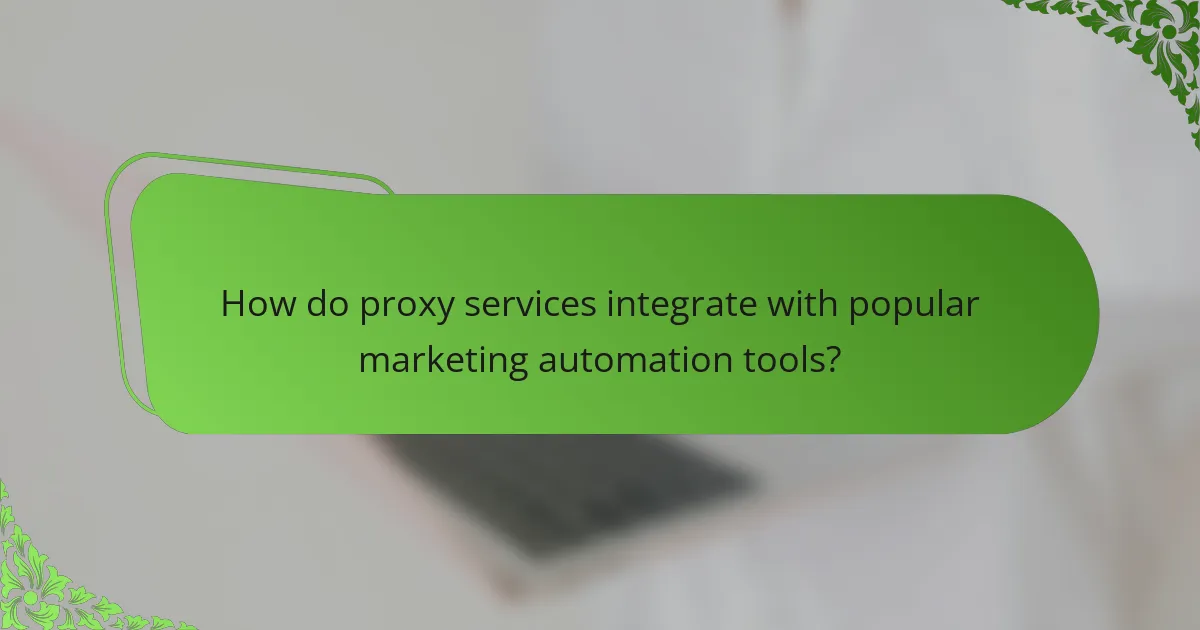
How do proxy services integrate with popular marketing automation tools?
Proxy services enhance marketing automation tools by allowing users to manage multiple accounts, scrape data, and conduct market research without being blocked. They provide anonymity and help maintain compliance with data regulations, making them valuable for marketers.
Integration with HubSpot
Integrating proxy services with HubSpot enables marketers to automate tasks like lead generation and data collection without risking IP bans. By routing requests through proxies, users can gather insights from various sources while maintaining their anonymity.
To implement this integration, users can configure HubSpot’s API to work with proxy settings. It’s crucial to choose reliable proxies to ensure consistent performance and avoid downtime, which can disrupt marketing campaigns.
Integration with Marketo
Marketo users can leverage proxy services to enhance their data enrichment processes. Proxies allow for the seamless collection of customer data from multiple platforms, which can then be analyzed to improve targeting and segmentation strategies.
When integrating with Marketo, it’s advisable to use rotating proxies to prevent detection and ensure a steady flow of data. This approach can significantly improve the effectiveness of marketing campaigns by providing more accurate customer insights.
Integration with Mailchimp
Mailchimp users can benefit from proxy services by managing multiple email accounts for testing and campaign deployment. Proxies help in avoiding spam filters and improving deliverability rates by distributing email traffic across various IP addresses.
For effective integration, users should ensure that their proxy provider offers high-speed connections and reliable uptime. Additionally, monitoring email performance metrics can help identify any issues related to proxy usage, allowing for timely adjustments.
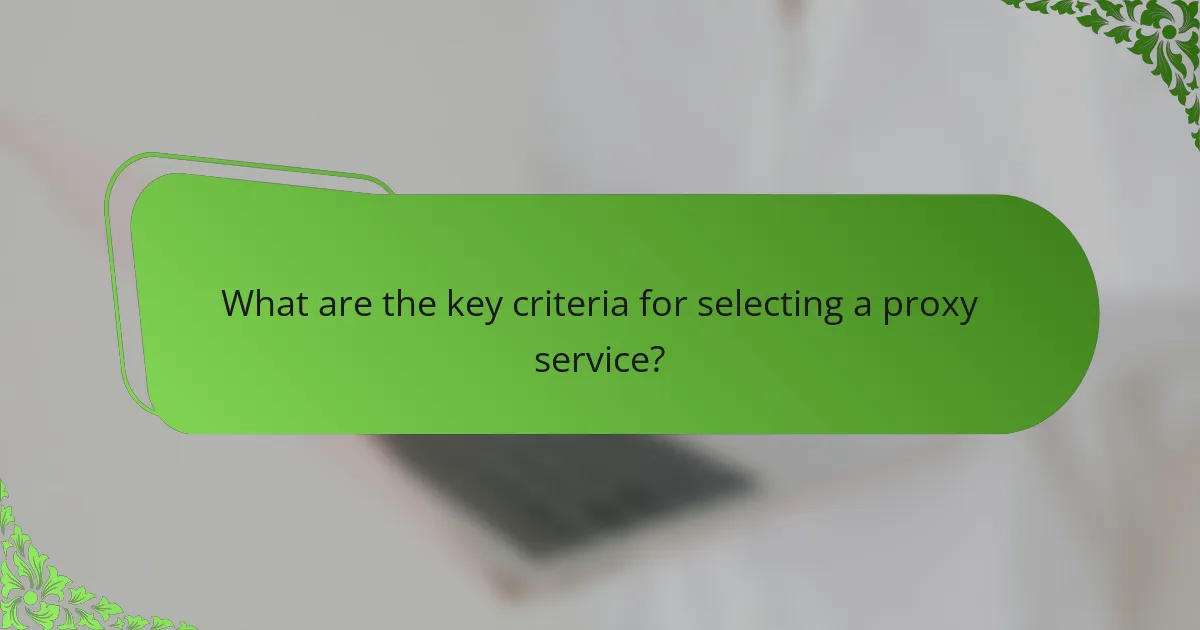
What are the key criteria for selecting a proxy service?
When selecting a proxy service, consider factors such as speed, reliability, geolocation options, and customer support quality. These criteria will help ensure that the proxy service meets your marketing automation needs effectively.
Speed and reliability
Speed and reliability are crucial for any proxy service, especially when handling large volumes of data or requests. Look for services that offer low latency, ideally in the range of low tens of milliseconds, to ensure quick response times.
Additionally, check for uptime guarantees, as a reliable proxy should maintain an uptime of at least 99%. This ensures that your marketing automation tools can function without interruptions, allowing for consistent performance.
Geolocation options
Geolocation options are essential for targeting specific markets or regions. A good proxy service should provide a variety of IP addresses from different countries, allowing you to simulate local browsing behavior.
Consider services that offer rotating IPs, as this can help avoid detection and improve the effectiveness of your marketing campaigns. For example, if you’re targeting European markets, ensure the service has a strong presence in countries like Germany, France, and the UK.
Customer support quality
High-quality customer support can make a significant difference when issues arise. Look for proxy services that offer 24/7 support through multiple channels, such as live chat, email, and phone.
Additionally, check for user reviews regarding response times and the effectiveness of the support team. A responsive and knowledgeable support team can help resolve issues quickly, minimizing downtime and ensuring your marketing automation tools run smoothly.
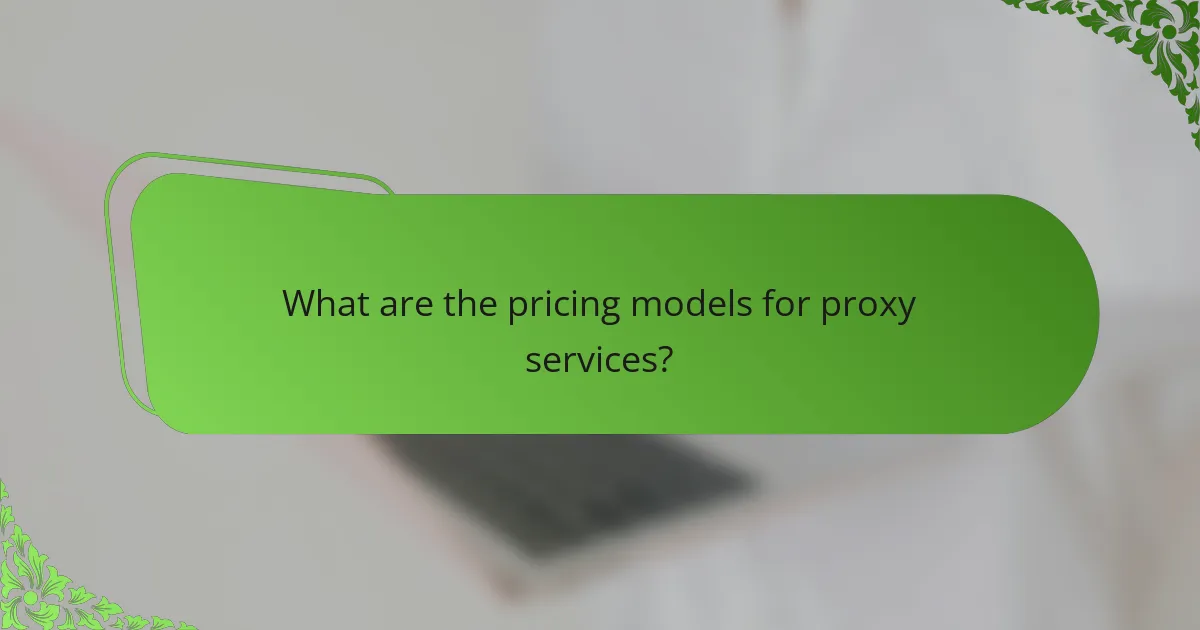
What are the pricing models for proxy services?
Proxy services typically offer several pricing models, allowing users to choose based on their specific needs and usage patterns. The most common models include pay-as-you-go, subscription-based, and enterprise pricing plans, each catering to different scales and requirements of businesses.
Pay-as-you-go pricing
Pay-as-you-go pricing allows users to pay only for the resources they consume, making it ideal for businesses with fluctuating needs. This model often charges based on the amount of data transferred or the number of requests made, providing flexibility without long-term commitments.
For example, a user might pay a few cents per gigabyte of data or a small fee per thousand requests. This model is beneficial for startups or small businesses that may not require constant proxy access.
Subscription-based pricing
Subscription-based pricing involves a fixed monthly or annual fee for a set amount of proxy usage, which can be more economical for regular users. This model typically offers tiered plans, where higher tiers provide more features, such as increased bandwidth or additional IP addresses.
For instance, a basic plan might start at around $10 per month for limited access, while premium plans can range from $50 to several hundred dollars, depending on the level of service and features included. This model suits businesses with predictable proxy needs.
Enterprise pricing plans
Enterprise pricing plans are tailored for large organizations with extensive proxy requirements. These plans often include custom pricing based on the specific needs of the business, such as dedicated IPs, enhanced security features, and priority support.
Companies may negotiate contracts that can range from hundreds to thousands of dollars per month, depending on their scale and usage. This model is ideal for enterprises that require high availability and reliability in their proxy services.
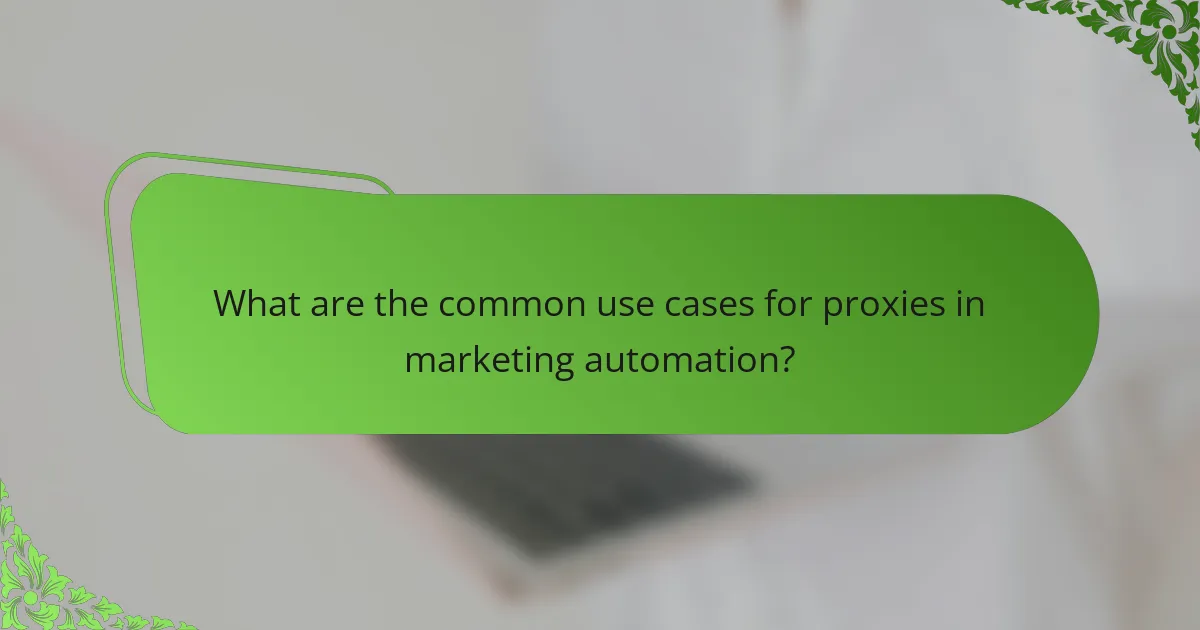
What are the common use cases for proxies in marketing automation?
Proxies serve several key functions in marketing automation, primarily enhancing data collection, ensuring anonymity, and managing multiple accounts. They allow marketers to gather insights without revealing their identity or risking IP bans, making them essential for effective campaigns.
Data Scraping and Competitive Analysis
Proxies are frequently used for data scraping, which involves extracting information from websites for market research or competitive analysis. By routing requests through different IP addresses, marketers can gather data without triggering anti-scraping measures, ensuring a steady flow of information.
For example, a marketing team might use proxies to monitor competitors’ pricing strategies or promotional offers. This can help them adjust their own strategies in real-time, keeping them competitive in the market.
Account Management and Automation
Managing multiple social media accounts or ad campaigns can be cumbersome, but proxies simplify this process. They allow marketers to operate several accounts from different IP addresses, reducing the risk of account suspension due to suspicious activity.
For instance, a business running multiple Facebook or Instagram profiles can use proxies to automate posting and engagement without facing restrictions. This approach can save time and enhance overall efficiency in managing digital marketing efforts.
Ad Verification and Fraud Prevention
Proxies play a crucial role in ad verification, helping marketers ensure their ads are displayed correctly and reaching the intended audience. By using proxies, they can simulate user behavior from various locations and check if their ads appear as planned.
Additionally, proxies help in detecting click fraud by allowing marketers to analyze traffic patterns and identify suspicious activities. This proactive approach can protect advertising budgets and improve campaign ROI.
